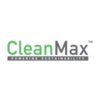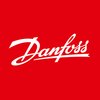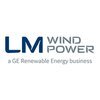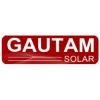Filter interviews by
Cygni Energy Area Service Incharge Interview Questions and Answers
Cygni Energy Area Service Incharge Interview Experiences
1 interview found
I applied via Approached by Company and was interviewed in Oct 2023. There were 3 interview rounds.
(2 Questions)
- Q1. Knowledge about Li-ion Batteries
- Q2. BMS related questions
(2 Questions)
- Q1. Customer relations questions
- Q2. Ev's description
- Ans.
Ev's description is a question about a specific topic or scenario that requires a detailed answer.
Understand the context of Ev's description and provide a comprehensive response
Include relevant examples or experiences to support your answer
Demonstrate your knowledge and expertise in the area being discussed
(1 Question)
- Q1. Managerial skills check
Interview Preparation Tips
- Li-ion batteries and EV's
Top trending discussions






Interview questions from similar companies


(2 Questions)
- Q1. Basic ups inverter battery related questions
- Q2. Power Calculation

Interview Questionnaire
5 Questions
- Q1. What is Igbt ?
- Ans.
IGBT stands for Insulated Gate Bipolar Transistor. It is a power semiconductor device used for switching and amplifying electrical signals.
IGBT combines the advantages of both MOSFET and bipolar junction transistor.
It has a high input impedance like a MOSFET and a low on-state voltage drop like a bipolar transistor.
IGBTs are commonly used in applications such as motor drives, power supplies, and renewable energy system...
- Q2. How to test Battery
- Ans.
To test a battery, you can use a multimeter to measure voltage, perform a load test, and check for any physical damage or leaks.
Use a multimeter to measure the voltage of the battery. A healthy battery should have a voltage close to its rated voltage.
Perform a load test by connecting a known load to the battery and monitoring its voltage drop. A healthy battery should maintain a stable voltage.
Inspect the battery for a...
- Q3. What is Mosfet
- Ans.
A MOSFET (Metal-Oxide-Semiconductor Field-Effect Transistor) is a type of transistor used for amplifying or switching electronic signals.
MOSFET is a three-terminal device that consists of a source, a drain, and a gate.
It is made up of a metal gate electrode separated from the semiconductor channel by a thin insulating layer of oxide.
MOSFETs are widely used in various electronic devices such as computers, smartphones, a...
- Q4. Brown black red resistant
- Q5. Working and check process diode ,bjt ,mosfet
Interview Preparation Tips

I applied via Naukri.com and was interviewed before Nov 2022. There were 2 interview rounds.

(3 Questions)
- Q1. Inverter battery and solar related questions
- Q2. Working process of electronic components and oms law
- Ans.
Electronic components work based on Ohm's Law, which relates voltage, current, and resistance.
Ohm's Law states that V = I * R, where V is voltage, I is current, and R is resistance.
Electronic components such as resistors, capacitors, and inductors follow Ohm's Law in their operation.
Understanding Ohm's Law helps in designing and troubleshooting electronic circuits.
For example, in a circuit with a 12V battery and a 4 oh...
- Q3. About MOSFET, capacitor, resistance, colourcoding of resistance
Interview Preparation Tips
- Electronic and battery inverter
- Solar

I applied via Indeed and was interviewed before Mar 2022. There were 3 interview rounds.

(3 Questions)
- Q1. What is your name and where r u from
- Q2. Qualification,and working experience
- Q3. Why do you want to work in utl
(3 Questions)
- Q1. What is the resistance
- Ans.
Resistance is the opposition to the flow of electric current.
Resistance is measured in ohms (Ω)
It is caused by the interaction between electrons and the atoms of a material
Materials with high resistance are called insulators, while those with low resistance are called conductors
Resistance can be calculated using Ohm's Law: R = V/I
Examples of resistors include light bulbs, heating elements, and electronic components
- Q2. What is capacitor and diode
- Ans.
A capacitor is an electronic component that stores energy in an electric field, while a diode is a semiconductor device that allows current to flow in only one direction.
Capacitors are commonly used in electronic circuits to filter out noise and stabilize voltage.
Diodes are used in rectifiers, voltage regulators, and signal demodulators.
Capacitors are measured in farads, while diodes are measured in volts and amperes.
- Q3. What is the transistor
- Ans.
A transistor is a semiconductor device used to amplify or switch electronic signals and power.
It has three layers of semiconductor material: P-type, N-type, and P-type.
It can be used as an amplifier to increase the strength of a weak signal.
It can also be used as a switch to turn a circuit on or off.
Transistors are commonly used in electronic devices such as computers, radios, and televisions.
Interview Preparation Tips

I applied via Approached by Company and was interviewed before May 2022. There were 2 interview rounds.

(5 Questions)
- Q1. What is inverter
- Ans.
An inverter is an electronic device that converts DC power to AC power.
Inverters are commonly used in solar power systems to convert DC power from solar panels to AC power for use in homes and businesses.
They are also used in cars to convert DC power from the battery to AC power for charging devices.
Inverters come in different sizes and capacities depending on the amount of power they can convert.
They can be pure sine ...
- Q2. How we check a inverter current
- Ans.
Inverter current can be checked using a clamp meter or a multimeter.
Use a clamp meter to measure the current flowing through the inverter's output wires
Set the clamp meter to the appropriate range and clamp it around one of the output wires
Read the current value displayed on the clamp meter
Alternatively, use a multimeter to measure the voltage drop across a shunt resistor in series with the output wires
Calculate the cu
- Q3. Function of igbt
- Ans.
IGBT stands for Insulated Gate Bipolar Transistor. It is a power semiconductor device used for switching and amplifying electrical power.
IGBT combines the advantages of both MOSFET and BJT transistors
It is used in various applications such as motor drives, power supplies, renewable energy systems, etc.
IGBT has a high input impedance and low on-state voltage drop
It is capable of handling high current and voltage levels
I
- Q4. Color code of resistance
- Ans.
The color code of resistance is used to identify the resistance value of a resistor.
The color code consists of four or five colored bands on the resistor.
The first two bands represent the significant digits of the resistance value.
The third band represents the multiplier.
The fourth band represents the tolerance.
The fifth band, if present, represents the temperature coefficient.
For example, a resistor with bands of brow...
- Q5. Function of diode
- Ans.
A diode is an electronic component that allows current to flow in one direction and blocks it in the opposite direction.
Diodes are commonly used in rectifiers to convert AC to DC
They are also used in voltage regulators to maintain a constant voltage
Diodes can be used as a switch in electronic circuits
They are made of semiconductor materials such as silicon or germanium

Senior Engineer Interview Questions & Answers
CleanMax Enviro Energy Solutionsposted on 14 Oct 2021
Interview Questionnaire
1 Question
- Q1. Technical questions, safety.
Interview Preparation Tips

(1 Question)
- Q1. Power bi, sap, automation, dashboard development
(1 Question)
- Q1. Hr questions...general information related to project. Tools and skills etc
Interview Preparation Tips

I appeared for an interview in Apr 2024.
(2 Questions)
- Q1. About work culture
- Q2. About technical
(1 Question)
- Q1. Related to Transformer

I appeared for an interview in Jul 2024.
(10 Questions)
- Q1. Can you tell me about yourself?
- Q2. What are your responsibilities in the plant?
- Ans.
As a Senior Engineer in the plant, my responsibilities include overseeing operations, managing projects, ensuring compliance with regulations, and leading a team of engineers.
Overseeing day-to-day operations in the plant
Managing projects related to plant upgrades or expansions
Ensuring compliance with safety and environmental regulations
Leading and mentoring a team of engineers
Troubleshooting technical issues and implem
- Q3. Why is tan delta testing conducted in power transformers?
- Ans.
Tan delta testing is conducted in power transformers to assess the insulation condition and detect any potential faults.
Tan delta testing helps in evaluating the insulation quality of power transformers.
It can detect any potential issues such as moisture, contamination, or aging of insulation materials.
By measuring the tan delta value, engineers can assess the dielectric losses in the transformer.
Regular tan delta test...
- Q4. What is a vector group?
- Ans.
A vector group is a method used to represent the phase relationship between the primary and secondary windings of a transformer.
Vector group indicates the connection of transformer windings and the phase shift between them.
It is represented by a combination of letters and numbers, such as Yd1, Dyn11, etc.
Different vector groups have different phase relationships, affecting the transformer's performance and operation.
Ve...
- Q5. What should be considered when erecting an IDT (Inverter duty Transformer)?
- Ans.
Considerations when erecting an IDT (Inverter duty Transformer)
Ensure the transformer is designed for inverter duty applications
Properly size the transformer based on the inverter's output power
Consider the harmonic content of the inverter's output when selecting the transformer
Provide adequate ventilation and cooling for the transformer to handle the increased heat generated by the inverter
Ensure proper grounding and ...
- Q6. What is the star-delta connection in power transformers?
- Ans.
Star-delta connection is a method used in power transformers to reduce starting current and improve efficiency.
Star-delta connection involves connecting the primary windings of the transformer in a star configuration during starting, and then switching to a delta configuration during normal operation.
This method helps in reducing the starting current drawn by the transformer, which is beneficial for the power system.
It...
- Q7. What types of conductors are used in high-tension (HT) lines, and what are their current capacities?
- Ans.
High-tension (HT) lines use different types of conductors with varying current capacities.
Types of conductors used in HT lines include aluminum, steel, and composite materials
Aluminum conductors are commonly used due to their lightweight and high conductivity
Steel conductors are used for their strength and durability
Composite conductors are a newer technology that offer a balance of strength and conductivity
Current cap...
- Q8. What is the distance between poles in 33KV high tension lines?
- Ans.
The distance between poles in 33KV high tension lines is typically around 50-60 meters.
The distance between poles in high tension lines is determined by factors such as terrain, voltage level, and local regulations.
In general, the distance can range from 50 to 60 meters for 33KV high tension lines.
This distance is important to ensure proper support and insulation of the conductors between poles.
- Q9. What is the process of laying LT cables?
- Ans.
The process of laying LT cables involves planning, trenching, laying the cables, jointing, testing, and backfilling.
Plan the route and depth of the trench for laying the cables.
Excavate the trench to the required depth and width.
Lay the cables in the trench, ensuring proper alignment and support.
Joint the cables together using appropriate connectors.
Test the cables for continuity and insulation resistance.
Backfill the ...
- Q10. What is the process for attaching modules?
- Ans.
The process for attaching modules involves identifying connection points, aligning the modules, securing them in place, and testing for functionality.
Identify connection points on both modules
Align the modules properly to ensure a secure fit
Secure the modules in place using appropriate fasteners or connectors
Test the functionality of the attached modules to ensure proper connection
(2 Questions)
- Q1. Why do you want to change jobs?
- Ans.
Seeking new challenges and opportunities for growth in a more innovative environment.
Desire for new challenges and opportunities
Seeking growth and advancement
Looking for a more innovative work environment
- Q2. What can you share about your family?
- Ans.
I come from a close-knit family of four, including my parents and younger sister.
My parents have always been supportive of my career choices and encouraged me to pursue my passion for engineering.
I have a younger sister who is currently studying computer science at university, following in my footsteps.
We enjoy spending quality time together, whether it's going on family vacations or simply having dinner at home.
Cygni Energy Interview FAQs
Tell us how to improve this page.
Interview Questions for Popular Designations
- Area Incharge Interview Questions
- Shift Incharge Interview Questions
- Store Incharge Interview Questions
- Area Sales Manager Interview Questions
- Area Sales Incharge Interview Questions
- Site Incharge Interview Questions
- Production Incharge Interview Questions
- Territory Sales Incharge Interview Questions
- Show more
Cygni Energy Area Service Incharge Interview Process
based on 1 interview
Interview experience
Interview Questions from Similar Companies
|
Service Engineer
11
salaries
| ₹2 L/yr - ₹3.8 L/yr |
|
Production Engineer
7
salaries
| ₹2.3 L/yr - ₹4.2 L/yr |
|
Deputy Manager
7
salaries
| ₹5.7 L/yr - ₹7 L/yr |
|
Test Engineer
7
salaries
| ₹1.2 L/yr - ₹3 L/yr |
|
Firmware Engineer
6
salaries
| ₹3 L/yr - ₹5.3 L/yr |

UTL Solar

Danfoss Power Solutions

LM Wind Power

Senvion
- Home >
- Interviews >
- Cygni Energy Interview Questions >
- Cygni Energy Area Service Incharge Interview Questions









